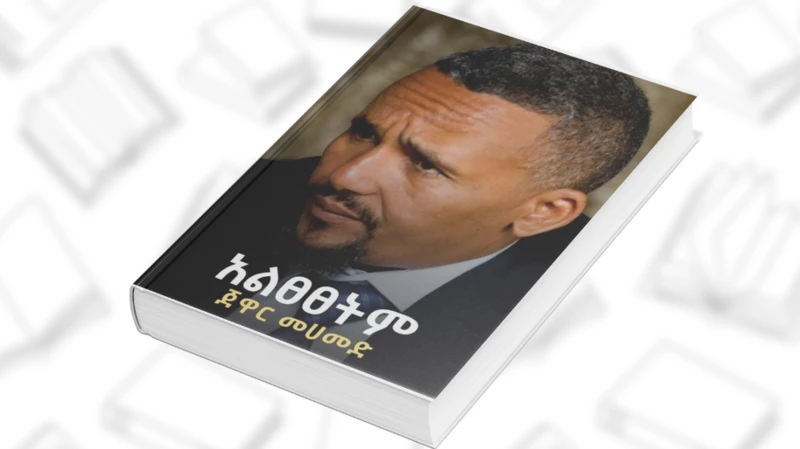Jawar Mohammed’s Memoir: "I Don't Regret"
Jawar Mohammed, a key figure in Ethiopia's recent political history, has released a memoir titled I Don't Regret. Written in both Amharic (“አልጰጰትም”) and Oromo (“Hin Gaabbu”), the book is a detailed account of his life and his role in Ethiopia's political struggles. Jawar shares his personal experiences, political views, and the challenges he faced, offering a deeper understanding of Ethiopia's recent history.
 |
| Image from BBC |
How the Book Was Written
Jawar wrote the book during his 18-month imprisonment, which followed the unrest after the assassination of the Oromo artist and activist Hachalu Hundessa in 2020. Despite the difficult conditions, he managed to write over 500 pages with the help of supporters who smuggled pages out of prison. This challenging process shows his determination to share his story.
What the Book Covers
1. Jawar's Early Life
The memoir starts with Jawar’s childhood, explaining how his upbringing shaped his views. He writes about his family, his education, and his early experiences in Ethiopia. Later, he discusses his time studying in the United States, where he developed a deeper understanding of politics and activism.
2. The Oromo Protests
Jawar explains his role in the Oromo protests, a movement that called for justice and equal rights for Ethiopia’s Oromo people. These protests eventually led to political changes, including the rise of Prime Minister Abiy Ahmed. The book describes the strategies used during the protests, as well as the challenges and successes of the movement.
3. Prison Experiences
A significant portion of the book focuses on Jawar’s time in prison. He writes about the hardships he endured, the support he received, and how these experiences influenced his perspective on Ethiopia’s future.
4. Reflections on Politics
Jawar shares his thoughts on Ethiopia’s political system, including its strengths and weaknesses. He acknowledges mistakes made during his activism but emphasizes that his efforts were focused on bringing positive change. The memoir also explores the complexities of ethnic identity and national unity in Ethiopia.
The Meaning of the Title
The title I Don't Regret reflects Jawar’s confidence in his choices. While he admits that not everything went as planned, he stands by his actions, believing that the benefits outweighed the costs. For Jawar, understanding and learning from the past is essential for creating a better future.
Main Themes in the Book
-
Identity and Justice: Jawar highlights the struggles of Ethiopia’s marginalized communities, particularly the Oromo people, and the need for justice and equality.
-
Democracy: The book calls for inclusive governance, where all ethnic groups have a voice and can participate in shaping the country’s future.
-
Sacrifice: Jawar emphasizes the sacrifices made by activists, including imprisonment and personal hardship, to fight for justice.
The Book’s Impact
The release of I Don't Regret has sparked widespread discussion in Ethiopia and beyond. Some readers admire its honesty and depth, while others view it as a one-sided account of Ethiopia’s political events. Regardless of differing opinions, the book provides valuable insights into Ethiopia’s challenges and Jawar’s role in addressing them.
Why This Book Matters
This memoir is more than just Jawar’s story. It is also a reflection of Ethiopia’s political struggles and a call for reconciliation and dialogue. Jawar shares his vision for a future where Ethiopia’s diverse communities work together to build a just and democratic society.
By reading I Don't Regret, readers can better understand the complexities of Ethiopia’s history and the ongoing fight for justice and equality. It is a book for anyone who wants to learn more about the sacrifices and resilience required to bring about change.

Comments
Post a Comment